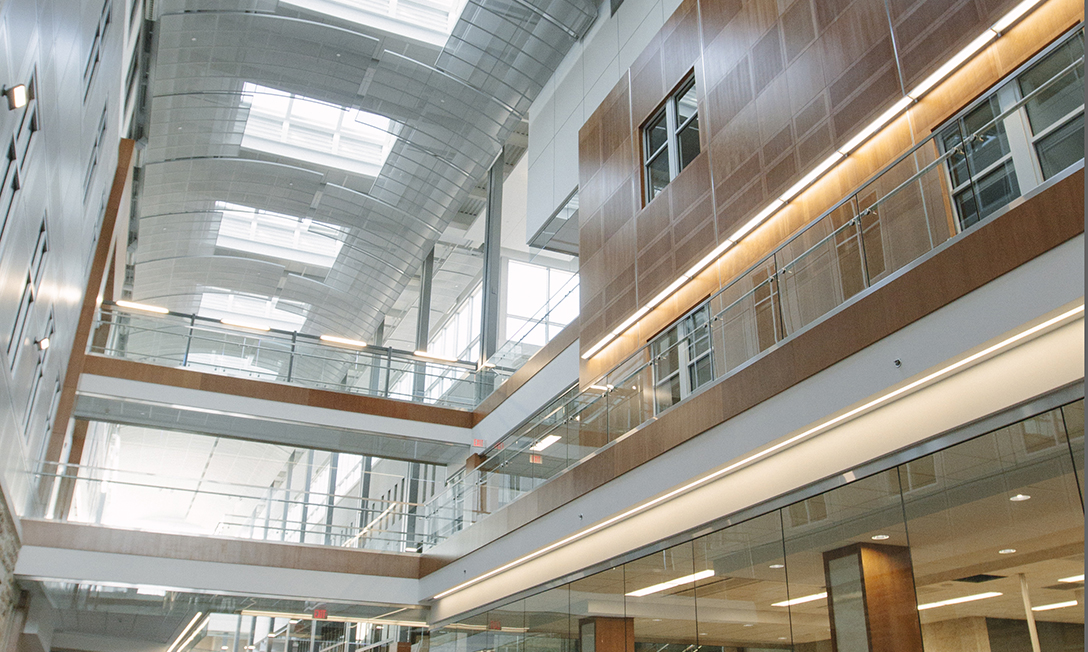
Supporting student wellness
Maintaining a healthy student-life balance while taking a demanding academic course load can be challenging. For students in the School of Rehabilitation Science (SRS), having access to health and wellness resources during their education is important.
By Amanda WoroniukLearners in the school’s Master of Physical Therapy (MPT) program benefit from key supports for mental, emotional and physical health. The SRS addresses wellness needs and provides support services through a student wellness coordinator, and on a peer-to-peer level, through the MPT student wellness committee.
Alumna Chantelle Baril (MPT’20) was on the committee as a student wellness representative during her second year in the MPT program. She says it was her own mental health challenges that prompted her to get involved.
“I thought, ‘I can really relate to this,’ and being in this professional college, it’s very stressful. Students put a lot of pressure on themselves,” said Baril, noting the committee was only in its second year when she participated. “I wanted to eliminate the stigma of it and encourage classmates that they can always reach out to us if they were struggling. They should not feel ashamed to reach out for help or can come to us if they needed someone to talk to. I really just wanted to be there for my classmates in any way I could.”
The committee promotes overall health through peer support and raises awareness of health and wellness resources available through the school. Baril, along with her second-year wellness co-representative, Nigel Hey, decided to go above and beyond for their peers during their time on the committee.
Baril said, “We were under the impression the wellness committee was supporting our classmates by providing coffee and donuts when stress levels were high, or flowers or expressions of condolences during times of loss. We took that idea, and thought ‘we want to do that,’ but want to take it to the next step.”
One of the ways the pair did that was to create a physical display to inspire and encourage fellow students in the school.
“A project we created was the wellness wall, which is a piece of wall in the college that we can put up photos, or students could put up quotes that inspire them or give them a reason to smile,” she said.
Through the Office of Student Affairs, the school has a student wellness coordinator, Bev Digout, who is focused on student health and wellbeing. Digout supports learners on their individual academic journey in a variety of ways and is a resource for student concerns or issues. She also works with the student committee on wellness initiatives.
When the university switched to online learning in March 2020, the first and second-year wellness representatives started a new project to help keep student morale high.
“When COVID started, we created an Instagram page. We did these competitions where people would send us photos, we would post them, then draw names from all the people who submitted pictures and they would win a prize.” The prizes were locally sourced to support the community.
Baril noted that Digout was a huge help in providing encouragement and helping create the page, and added that professors also got involved in the page. It was a way for students and faculty to continue communication, as students were not returning to in-person learning.
“It was difficult not to be in the classroom, because physical therapy requires you to be there with a person,” said Baril. “Staying in contact helped keep students connected, especially those who lived alone. It also kept students optimistic about school and life in general.”
The committee also connected with students through video chats and encouraged them to seek additional support if needed.
“During the pandemic, the committee provided coping tips and encouraging healthy lifestyles – exercise, diet and sleep. We wanted to make sure (students) had someone to talk to, offer encouragement and support, or seek out professional support for mental health concerns, like stress, anxiety and depression. We also provided resources like tips for coping while learning remotely,” said Baril.
“People think physical therapy is only physical health. But it’s mental health too, especially during this stressful time in our life.”
